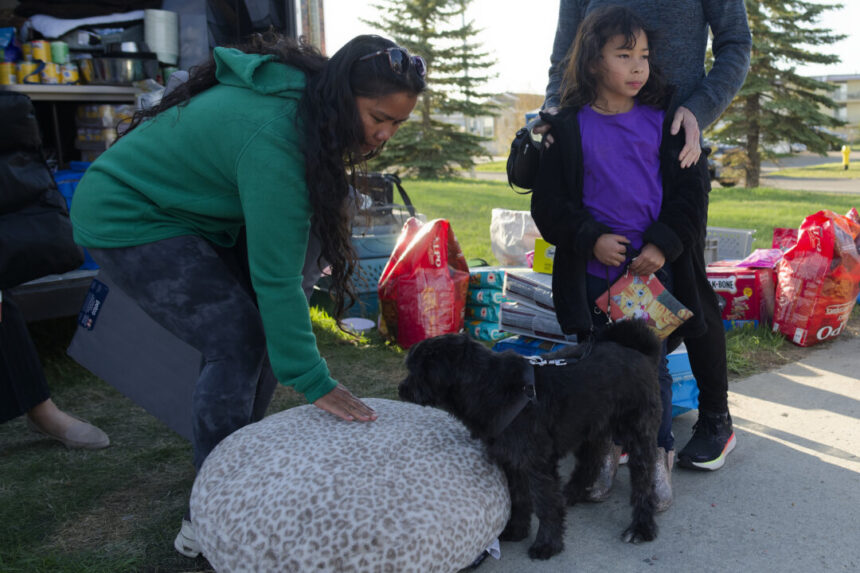Kelleen Blouin was away visiting relatives when her home in Cranberry Portage, northwestern Manitoba, had to be evacuated due to an approaching wildfire on May 11. The evacuation affected over 500 people in the region, with little time to prepare.
“We started hearing about the evacuation around 7:30 p.m.,” she shared. “It was a nightmare for about eight hours. We went to bed not knowing if our house would be burned down by morning.” The uncertainty of when they could return home is a major concern for Blouin and other evacuees.
In addition to Manitoba, over 5,000 people have been evacuated in northern British Columbia due to wildfires, with more evacuations underway in Alberta. A two-hour evacuation notice was issued on May 14 in part of the Regional Municipality of Wood Buffalo near Fort McMurray.
Blouin mentioned that her home is on the edge of Cranberry Portage, meaning it would be among the first to be affected if the fire reached that far. The fear of losing irreplaceable items like photos and baby albums is a common concern among evacuees.
The emergency coordinator for the Regional Municipality of Kelsey in Manitoba, Lori Forbes, highlighted the challenges faced by evacuees who had to leave with minimal belongings. She emphasized the uncertainty of not knowing what the future holds for their homes.
Volunteers and agencies are working hard to provide support and comfort to evacuees, with initiatives like entertainment for children, food distribution, and mental health counseling. The effort is aimed at addressing the immediate needs of those displaced by the wildfires.
In northeastern British Columbia, Ian Langstaff has taken measures to protect his property from the Parker Lake wildfire, which led to the evacuation of Fort Nelson. Despite evacuation orders, Langstaff and a few others have chosen to stay and defend their homes.
The mayor of Northern Rockies Regional Municipality, Rob Fraser, commended the orderly evacuation of around 3,700 people from Fort Nelson despite the suddenness of the fire. The community’s response showcased responsibility and cooperation among residents during a crisis.
Evacuees in both Manitoba and British Columbia are facing uncertainty about the fate of their homes and communities. Local authorities are working to provide information and support to help alleviate concerns among those displaced by the wildfires.
Concerns about food supplies are rising.
Just on the outskirts of Fort Nelson, Mr. Langstaff is bracing for the worst while also extending a helping hand to those in need of evacuation assistance.
“Today, I’ve assisted with fixing four vehicles for evacuees and provided fittings for water haulers,” he shared. “Our community is close-knit, filled with hard-working individuals.”
Mr. Fraser expressed his hopes of never having to issue an evacuation order himself.
“However, if the need arises, there are capable individuals ready to assist in making such tough decisions.”





